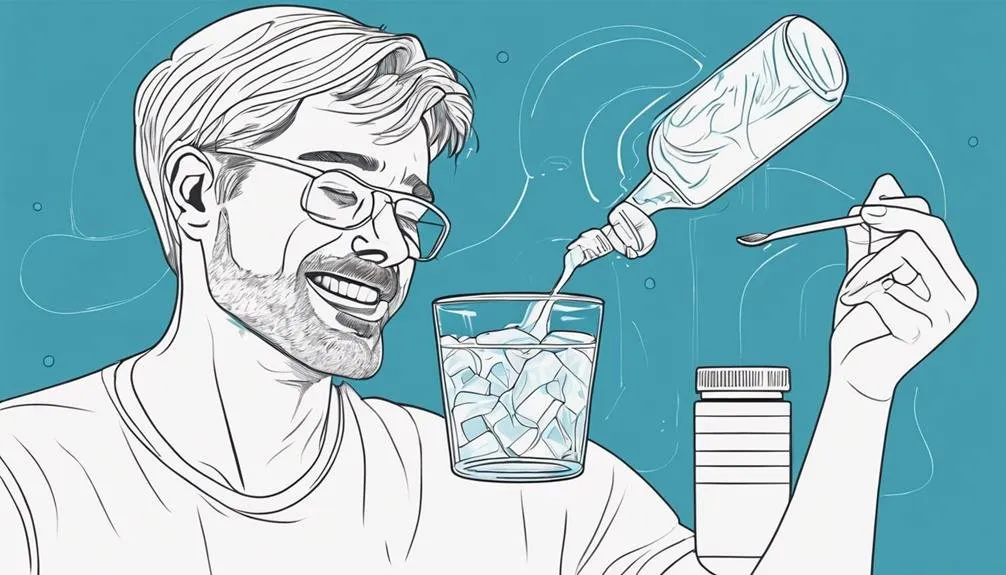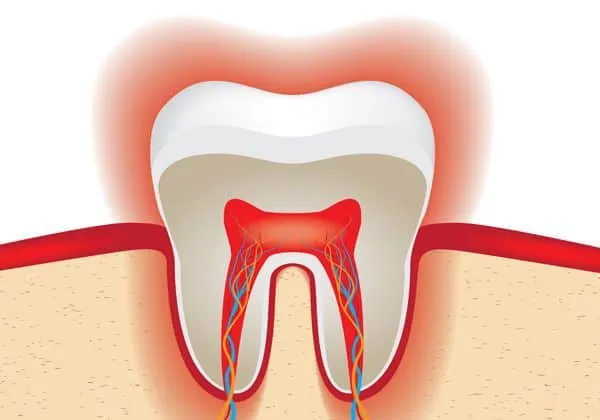Understanding Sensitivity After Whitening
Teeth whitening is a popular cosmetic procedure that can dramatically improve the appearance of your smile. However, a common side effect is tooth sensitivity. This sensitivity can range from mild discomfort to sharp, shooting pains, often triggered by hot, cold, sweet, or sour foods and drinks. Understanding why this happens is the first step toward finding effective relief. The good news is that sensitivity is usually temporary, and there are many ways to manage it while your teeth adjust. It’s essential to know the causes, immediate relief strategies, and long-term solutions to ensure you can enjoy your brighter smile without unnecessary pain. Remember, everyone’s experience is different, so what works for one person may not work for another; find what works best for you.
Causes of Sensitivity
Tooth sensitivity after whitening is primarily caused by the bleaching agents used in the process, usually hydrogen peroxide or carbamide peroxide. These agents penetrate the enamel and dentin of your teeth to break down stain molecules. In doing so, they can temporarily dehydrate the teeth and irritate the nerves inside. The pores in your enamel become more open during this process, allowing substances to reach the nerves more quickly, thus causing the sensitivity. This is a common response and doesn’t necessarily indicate a problem with the whitening treatment itself. However, the level of sensitivity can vary widely from person to person, depending on several factors.
The Whitening Process

The teeth whitening process, whether done at home or in a dental office, involves the application of a bleaching agent. Professional treatments often use higher concentrations of the active ingredients for faster results. Home kits, on the other hand, use lower concentrations but may require more applications over a longer period. During whitening, the bleaching agent breaks down stains that have accumulated on the surface and within the tooth structure. This process opens the pores of the enamel, making the teeth more susceptible to external stimuli, which causes sensitivity. This effect typically subsides once the whitening process is complete, and the teeth have had time to rehydrate and remineralize. The duration and intensity of sensitivity vary based on the bleaching agent’s strength, the length of exposure, and individual tooth characteristics.
Factors Affecting Sensitivity
Several factors can influence how sensitive your teeth become after whitening. These include the concentration of the whitening agent, the duration of its contact with your teeth, and the overall health of your teeth and gums. People with naturally thin enamel or pre-existing dental issues, such as cavities, micro-cracks, or receding gums, are more likely to experience heightened sensitivity. Genetics also play a role; some individuals are simply more prone to sensitive teeth than others. Additionally, how well you follow pre- and post-whitening care instructions can affect the level of sensitivity you experience. It’s crucial to discuss your dental history and any existing conditions with your dentist before starting any whitening treatment to mitigate potential discomfort.
Immediate Relief Strategies
When sensitive teeth strike, immediate relief is what you crave. Thankfully, several strategies can help soothe the discomfort quickly. The most common and readily available solutions include over-the-counter products, home remedies, and making certain dietary adjustments. These methods focus on reducing the exposure of your tooth nerves to irritants and promoting remineralization of your enamel. Remember that immediate relief is about managing the symptoms, while the underlying sensitivity typically resolves on its own over time. However, combining these strategies can provide significant comfort and help you enjoy your day-to-day activities without the worry of pain. Experiment to see what works best for you.
Over-the-Counter Products

Several over-the-counter products can effectively reduce tooth sensitivity. These products work by either blocking the tubules in your dentin, which lead to the nerves, or by strengthening the enamel. Using them consistently can provide significant relief. It’s important to choose products specifically designed for sensitive teeth and follow the instructions carefully for best results. Combining multiple products might offer even better relief. It’s always a good idea to check with your dentist to see if you need something extra.
Desensitizing Toothpaste
Desensitizing toothpaste contains ingredients like potassium nitrate or strontium chloride, which help block the pathways to the nerves in your teeth. These ingredients work by either blocking the nerve signals or forming a protective layer over the dentin tubules. Using this toothpaste consistently, typically twice a day, can significantly reduce sensitivity over time. It’s recommended to start using desensitizing toothpaste a few weeks before your whitening treatment to prepare your teeth. Continue using it after whitening for ongoing relief. Be patient, as it can take up to a few weeks to see the full effects. Make sure to brush gently to avoid further irritation.
Fluoride Treatments
Fluoride is a natural mineral that helps strengthen tooth enamel and reduce sensitivity. It works by remineralizing the enamel, making it more resistant to acid and other irritants. Over-the-counter fluoride mouthwashes and gels can provide added protection. Using a fluoride treatment can help to reduce sensitivity following a whitening session. It helps to rebuild the enamel, blocking the tubules and minimizing nerve exposure. Follow product instructions carefully, and don’t swallow the product. Using a fluoride treatment helps to strengthen your teeth and can be a helpful tool in the long run.
Home Remedies for Immediate Relief

Beyond over-the-counter products, several home remedies can provide immediate relief from tooth sensitivity. These strategies focus on reducing exposure to irritants and soothing the nerves. These are simple changes you can make at home to make a big difference in your comfort level. Experiment with these remedies to see which ones work best for you.
Avoidance of Irritants
One of the simplest and most effective home remedies is avoiding known irritants. This includes very hot and cold foods and drinks, which can trigger sharp pain. Also, acidic foods and beverages, such as citrus fruits, soda, and wine, can exacerbate sensitivity by further eroding the enamel. Consider using a straw for acidic drinks to minimize contact with your teeth. Give your teeth a break from these irritants to allow them time to recover and remineralize. Taking small steps will result in big gains.
Dietary Adjustments
Making dietary adjustments can significantly impact tooth sensitivity. Focus on consuming a balanced diet rich in calcium and phosphorus, which support enamel remineralization. Include foods like dairy products (if you’re not lactose intolerant), leafy green vegetables, and nuts in your diet. These foods provide essential nutrients for strong teeth. Limit your intake of sugary and acidic foods and drinks to protect your enamel from further damage. Drinking plenty of water also helps rinse away food particles and neutralize acids, promoting overall oral health and reducing sensitivity.
Long-Term Solutions and Prevention

While immediate relief strategies are essential, long-term solutions and preventive measures are critical for managing and minimizing tooth sensitivity. These solutions focus on strengthening the enamel, protecting the gums, and maintaining good oral hygiene. By implementing these strategies, you can reduce the likelihood of future sensitivity and enjoy a healthier, more comfortable smile.
Professional Treatments
Professional dental treatments can provide more advanced and lasting solutions for tooth sensitivity. These treatments are typically administered by your dentist and are designed to address the underlying causes of sensitivity. While over-the-counter products offer temporary relief, professional treatments aim to provide more durable results. A visit to your dentist can determine the specific treatments needed for your unique situation. If your sensitivity is severe or persistent, these options can make a big difference.
In-Office Fluoride Treatments
Your dentist can apply a high-concentration fluoride treatment directly to your teeth. These treatments are much stronger than those available over-the-counter and help strengthen the enamel more effectively. The professional application ensures that the fluoride penetrates the enamel and remineralizes the teeth more efficiently. This can dramatically reduce sensitivity by blocking the dentin tubules. These treatments are fast, typically painless, and can provide several months of relief. Your dentist may also recommend follow-up treatments and home care instructions to maintain the benefits.
Bonding or Fillings

In cases where sensitivity is caused by exposed dentin due to receding gums, micro-cracks, or minor cavities, your dentist may recommend dental bonding or fillings. Bonding involves applying a tooth-colored resin to the affected areas to seal off the exposed dentin and protect the nerves. Fillings are used to repair cavities and prevent further irritation. These treatments provide a physical barrier against irritants, reducing sensitivity significantly. While these procedures are more invasive than other options, they offer long-lasting relief and address the root cause of the problem.
Proper Oral Hygiene
Maintaining proper oral hygiene is essential for preventing and managing tooth sensitivity. This involves adopting gentle brushing techniques, using the correct dental products, and making regular dental check-ups. A consistent and mindful approach to oral care helps protect your enamel, prevent gum recession, and ensure the overall health of your teeth and gums. Taking the time to care for your teeth will pay off.
Gentle Brushing Techniques
Brushing your teeth too hard or using a hard-bristled toothbrush can wear away the enamel and contribute to gum recession, both of which increase sensitivity. To avoid this, use a soft-bristled toothbrush and brush gently in a circular motion. Avoid applying excessive pressure. Focus on reaching all surfaces of your teeth. Brushing correctly, twice a day, for two minutes each time, is the best way to clean your teeth. Gentle brushing helps preserve your enamel, protects your gums, and reduces your risk of sensitivity. Replace your toothbrush every three months or sooner if the bristles become frayed.
Regular Dental Check-ups

Regular dental check-ups are crucial for maintaining your oral health and preventing tooth sensitivity. During your check-up, your dentist can identify early signs of enamel erosion, gum recession, or other issues that might cause sensitivity. Professional cleanings remove plaque and tartar buildup, which can irritate the gums and increase sensitivity. Your dentist can also provide advice and guidance on proper oral hygiene techniques, recommend appropriate dental products, and administer treatments like fluoride. Regular check-ups ensure any problems are addressed quickly, preventing them from worsening. Aim for check-ups at least twice a year or as recommended by your dentist.
When to Seek Professional Help
While tooth sensitivity after whitening often resolves on its own, there are times when you should seek professional help. If your sensitivity is severe, persistent, or worsens over time, it’s important to consult your dentist. Other signs that you need professional attention include pain that doesn’t respond to over-the-counter treatments, pain that interferes with your daily activities, or any other unusual symptoms, such as bleeding gums or swelling. Your dentist can diagnose the underlying cause of your sensitivity and recommend the appropriate treatment plan to alleviate your discomfort and address any underlying dental issues. They can offer solutions that are not available without professional intervention. Don’t hesitate to seek help if you need it.
In conclusion, tooth sensitivity after whitening is a common and usually temporary side effect. By understanding the causes, utilizing immediate relief strategies, and adopting long-term preventive measures, you can effectively manage and minimize the discomfort. Remember to use the products and methods that work best for you and consult with your dentist for personalized advice and treatment. With the right approach, you can enjoy a brighter smile without unnecessary pain. Take care of your teeth, and they will take care of you!
